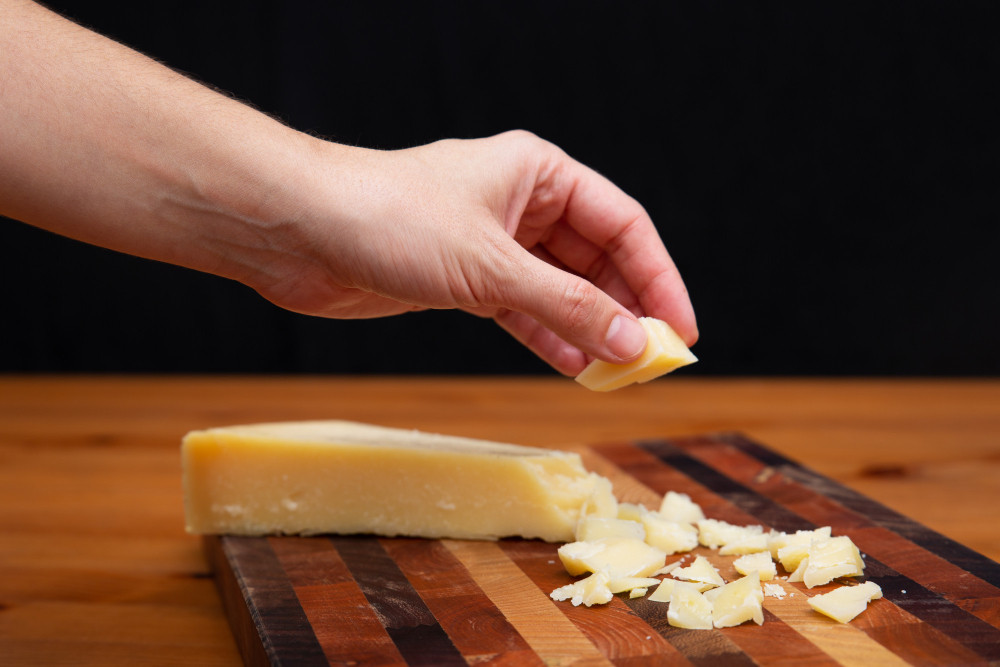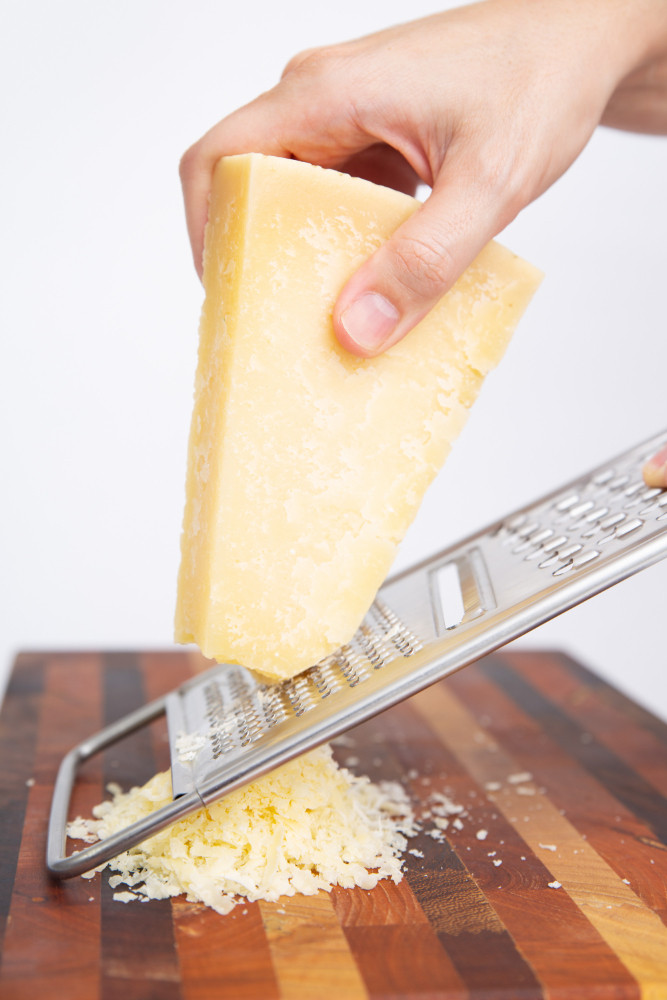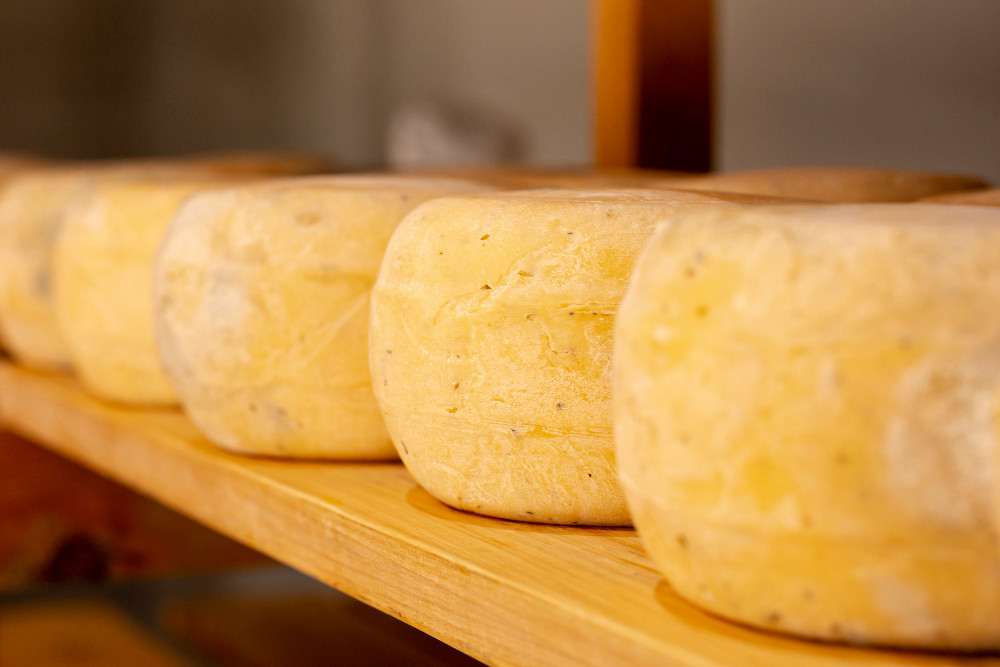Why Parmesan Cheese Isn’t Vegetarian? People Are Losing It

©️ pch.vector / Freepik
Did you know Parmesan cheese isn’t vegetarian?
For cheese lovers, Parmesan has long been a prized addition to everything from pasta to salads, its rich, savory flavor a staple in countless recipes. But what if we told you that the cheese you’ve been sprinkling on your dishes is not actually suitable for vegetarians?
The shockingly grim truth behind Parmesan cheese’s production is now making waves online. It is being revealed why this iconic cheese might not be as innocent as it seems. Brace yourself as we uncover the disturbing reason Parmesan isn’t vegetarian—and why this revelation has cheese lovers reeling.
Parmesan Cheese Not Vegetarian
What Is Animal Rennet?
Animal rennet comes from the stomach lining of young ruminants like calves, goats, and lambs. Traditionally, producers remove the stomachs of these animals after slaughter, dry them, and process them into rennet.
This enzyme plays a crucial role in cheese production, helping to coagulate milk, separating the curds from the whey, and forming the solid mass needed to create cheese.

For many vegetarians, the use of animal rennet in Parmesan cheese comes as a surprise, as it involves the use of animal parts. This makes it incompatible with a vegetarian diet. The process of obtaining rennet involves slaughtering the animal, which adds to the ethical concerns surrounding its use.
The Parmesan Cheese Process
Parmesan cheese, also known as Parmigiano Reggiano, is produced in specific regions of Italy: Parma, Bologna, and Reggio Emilia. To earn the prestigious title of Parmesan, the cheese must adhere to traditional methods. This includes the use of animal rennet.
The cheese-making process involves adding the rennet to milk. This allows the milk to thicken and form curds, which are then aged to develop the cheese’s characteristic flavor and texture.
The Shock on Social Media
The revelation about Parmesan cheese’s non-vegetarian status has sparked a wave of reactions on social media. Someone’s dramatic reaction simply read:
“PARMESAN CHEESE IS NOT VEGETARIAN??!?!!!???!??? WTF“
Many users expressed their shock and dismay, with some voicing their intention to switch to a vegan diet. Tweets like “Today years old when I found out Parmesan cheese is made from baby cow’s stomach and I could go cry. I’m just gonna have to go fully vegan at this point” reflect the surprise and upset felt by many.
The discussion has not only focused on the ethical implications of using animal rennet but also on the broader issue of cheese ingredients and vegetarianism. The sentiment among some social media users is that they are re-evaluating their food choices, with statements like “I just can’t … I’m done” highlighting the emotional impact of this revelation.
Alternatives for Vegetarians
For those who are looking to avoid animal rennet but still enjoy cheese, there are several alternatives. Many modern cheeses use non-animal rennet options such as microbial or plant-based rennet. These alternatives do not involve animal products and are more suitable for vegetarians.
Even some readers tried to inform others about this, commenting, “Most cheese is now made with chymosin from bacterial sources, rather than animal rennet.“
“They use Genetically modified Bacteria to create the enzymes now,” added another one.
In addition, there are a variety of plant-based cheese alternatives available that cater to vegan diets. These options are made without animal-derived ingredients and provide a cruelty-free choice for cheese lovers.
The Future of Cheese Production
The shift toward using non-animal rennet in cheese production is growing. Many brands, particularly in the U.S., now use microbial or vegetable rennet to cater to dietary preferences and ethical concerns. However, traditional Parmesan cheese will continue to use animal rennet due to its strict loyalty to historical methods and regional regulations.

The revelation that Parmesan cheese contains animal rennet has undoubtedly stirred a significant amount of discussion and concern.
While traditional Parmesan cheese remains off-limits for vegetarians, the availability of alternative rennet sources and plant-based cheeses provides options for those who wish to avoid animal products.
As awareness grows, the cheese industry may continue to evolve, offering more ethical choices for all consumers.
For those committed to vegetarianism or veganism, it’s essential to stay informed about food ingredients and production methods to make choices that align with their values.
You may also like: Spice Up Your Movie Night With These Delicious Snack Ideas


